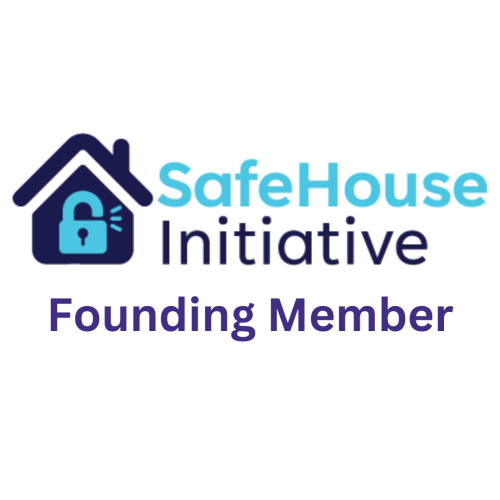Your Business and Operations. Secured.

Cybercrime will cost companies worldwide an estimated $10.5 trillion annually by 2025. Companies of all sizes and types, from family-owned small businesses to large Multinational companies, from government and non-profits, are all globally vulnerable to cybercrime attacks.
A sobering statistic is that 58% of all cyber-attacks are against Small Businesses. It is imperative that companies of all sizes not only leverage security solutions in their digital operation but also test vulnerabilities of all types to ensure protection.
Our Team of experienced cybersecurity experts have worked on dozens of companies and organizations, including Financial Services, Government, Software Development, Media and Streaming, and other organizations.
With more than 10 years of Cybersecurity experience on average, our team can help protect your business and your customers.

The best people require the best tools. The following are just some of the tools that our team utilizes during the delivery of our services: Burpsuite for web application pentests, Metasploit for infrastucture engagements, IBM AppScan.

Penetration testing, also known as a pen test, is a simulated cyber attack against your computer system to check for exploitable vulnerabilities.
Pen testing can involve the attempted breaching of any number of application systems, (e.g., application protocol interfaces (APIs), frontend/backend servers) to uncover vulnerabilities, such as unsanitized inputs that are susceptible to code injection attacks.
Insights provided by the penetration test can be used to fine-tune your security policies and patch detected vulnerabilities.

Dynamic code scanning – also called Dynamic Application Security Testing (DAST) – is designed to test a running application for potentially exploitable vulnerabilities. DAST tools are used to identify both compile time and runtime vulnerabilities.
DAST tools use a dictionary of known vulnerabilities and malicious inputs to “fuzz” an application. Since DAST tools are executed on a running application they can detect a wide range of potential vulnerabilities. This includes vulnerabilities that are difficult or impossible to detect in source code, such as memory allocation issues.

A phishing campaign is an email scam designed to steal personal information from victims. Cybercriminals use phishing, the fraudulent attempt to obtain sensitive information such as credit card details and login credentials, by disguising as a trustworthy organization or reputable person in an email communication.
A phishing campaign uses social-engineering techniques to lure email recipients into revealing personal or financial information. For example, during the holidays, an email pretending to be from a well-known company tells you to go to its website and re-enter your billing information or your package won’t be shipped in time to make it your gift recipient. The only problem is that the fake email directs you to a fake site, where the information you enter will be used to commit identity theft, fraud and other crimes.
One Fathom Above can launch such campaign against the employees of your company to assess the state of security and educate your users.

Security Awareness Training is a strategy IT and security professionals use to prevent and mitigate user risk. These programs are designed to help users and employees understand their role in helping combat information security breaches.
Security awareness training is crucial because it educates employees about cybersecurity threats and best practices, reducing the likelihood of human error-driven security breaches. By fostering a culture of security consciousness, it empowers staff to recognize and report potential threats, protect sensitive information, and defend against phishing and social engineering attacks. This training not only helps ensure compliance with regulations but also mitigates risks, bolsters the organization's reputation, and cultivates an ongoing commitment to cybersecurity in an ever-evolving digital landscape.
Our security experts will determine the training needs of your users and run the series of training events tailored for specific groups of employees (Finance, HR, ServiceDesk, IT).

Red Team exercises differ from penetration testing in that they don’t focus on a single application or system, but instead set out to exploit multiple systems and potential avenues of attack. The gloves are off, and “Think like an attacker” is the rule of play.
While thinking like an attacker, a Red Team group acts as (and provides security feedback from the perspective of) a malicious threat or challenger. It’s up to the business’s dedicated security team – the Blue Team – who is unaware of the Red Teams plans, to provide a suitable response in detecting, combating, and weakening their opposition.

Vulnerability Scanning is a broad term, used to describe the automated process of detecting defects in an organization’s security program. This covers areas such as the patch management process, hardening procedures, and the Software Development Lifecycle (SDLC).
Customers’ assets are periodically scanned for vulnerabilities, and reports are delivered for relevant stakeholders, to mitigate discovered vulnerabilities. As the scans are run periodically it allows for decreasing the attack surface of customers enterprise.

OFA helps companies prepare for cybersecurity certification by following a structured and comprehensive process.
First we determine which cybersecurity certifications are relevant to your industry, regulatory requirements, and business objectives. Common certifications include ISO 27001, NIST Cybersecurity Framework, PCI DSS.
Then we follow a rigorous process, some activities from which are listed below:
One Fathom Above follows the National Institute of Standards and Technology Cybersecurity Framework. Our team, together with our partners at the SafeHouse Initiative, can help you design, build and test your digital environment and help you achieve business and operational resilience.
The SafeHouse Initiative is a collective of industry-leading technology companies that provide SafetyNet technologies, operational resilience guidance and solutions by focusing on protecting customer critical applications while optimizing Recovery Point Objectives (RPO) and Recovery Time Objectives (RTO). Visit www.safehouseinitiative.org for more details.
